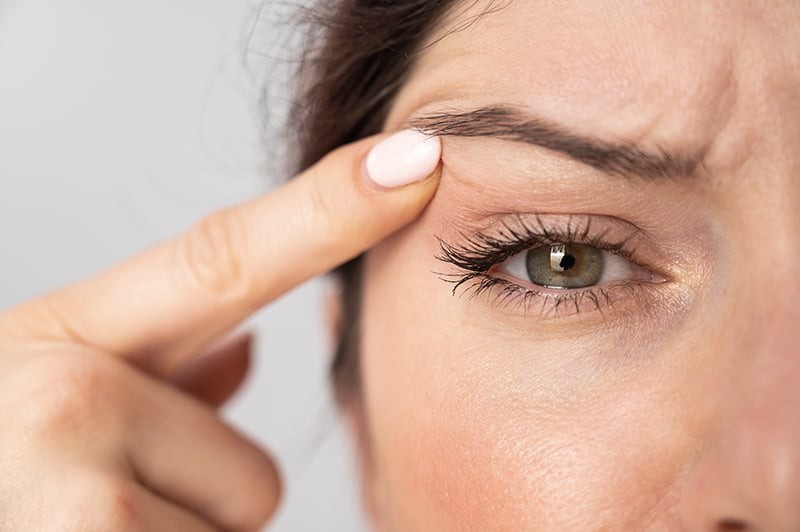Lower eyelid twitching, also known as myokymia, is a common and usually harmless experience. It feels like a subtle fluttering or spasm in your lower eyelid. While often temporary and benign, persistent twitching can be bothersome and may indicate an underlying issue. This article explores the common causes of lower eyelid twitching, when to seek medical attention, and available treatment options.
Common Causes of Lower Eyelid Twitching
Several factors can trigger lower eyelid twitching. Most cases are attributed to lifestyle factors and are easily remedied. However, understanding the potential causes can help you address the issue effectively.
- Stress and Fatigue: Stress and lack of sleep are common culprits. When you’re stressed or tired, your body releases hormones that can heighten muscle excitability, making twitches more likely.
- Caffeine and Alcohol: Excessive consumption of caffeine and alcohol can stimulate the nervous system and contribute to muscle spasms, including eyelid twitching.
- Eye Strain: Prolonged screen time, reading in poor light, or uncorrected vision problems can strain your eye muscles, leading to twitching.
- Dry Eyes: When your eyes are dry, they become irritated, which can trigger increased blinking and spasms in the eyelid muscles.
- Nutrient Deficiencies: In rare cases, deficiencies in certain nutrients, like magnesium, can contribute to muscle twitching.
Caption: Lifestyle factors like stress can contribute to lower eyelid twitching.
When to See a Doctor
While most lower eyelid twitches resolve on their own, it’s essential to seek medical attention if you experience:
- Persistent Twitching: If the twitching lasts for more than a few weeks, it’s crucial to consult a doctor to rule out any underlying medical conditions.
- Eyelid Closure: If the twitching becomes so severe that your eyelid completely closes with each spasm, seek immediate medical attention.
- Other Symptoms: If the twitching is accompanied by other symptoms like redness, swelling, discharge, or drooping of the eyelid, consult a doctor as these could indicate a more serious problem.
- Spreading Twitches: If the twitching spreads to other parts of your face, it might be a sign of a neurological condition requiring medical evaluation.
Caption: Consult a doctor if your lower eyelid twitching is persistent or accompanied by other symptoms.
Treatment for Lower Eyelid Twitching
Treatment for lower eyelid twitching depends on the underlying cause. For most cases related to lifestyle factors, simple remedies can provide relief:
- Stress Management: Practice relaxation techniques like deep breathing, meditation, or yoga to reduce stress levels.
- Adequate Sleep: Ensure you are getting enough sleep (7-9 hours per night) to allow your body to rest and repair.
- Reduce Caffeine and Alcohol: Limit your intake of caffeine and alcohol to minimize their stimulating effects on the nervous system.
- Eye Care: Use artificial tears to lubricate dry eyes and take frequent breaks from screen time to reduce eye strain. Address any underlying vision problems with corrective lenses.
- Warm Compresses: Applying a warm compress to your eye can help relax the muscles and reduce twitching.
Caption: Warm compresses can help soothe and relax eye muscles, reducing twitching.
In rare cases, if the twitching is persistent and severe, a doctor might recommend:
- Botulinum Toxin Injections: Small doses of botulinum toxin (Botox) can be injected into the affected muscle to temporarily paralyze it and stop the twitching. This is usually reserved for severe cases.
- Medication: In some cases, medications like muscle relaxants might be prescribed to reduce muscle spasms.
Conclusion
Lower eyelid twitching is typically a temporary and harmless annoyance. Addressing lifestyle factors like stress, fatigue, and caffeine intake often resolves the issue. However, persistent or severe twitching warrants medical attention to rule out underlying medical conditions and discuss appropriate treatment options. If you’re concerned about your lower eyelid twitching, consulting a doctor is always the best course of action.
